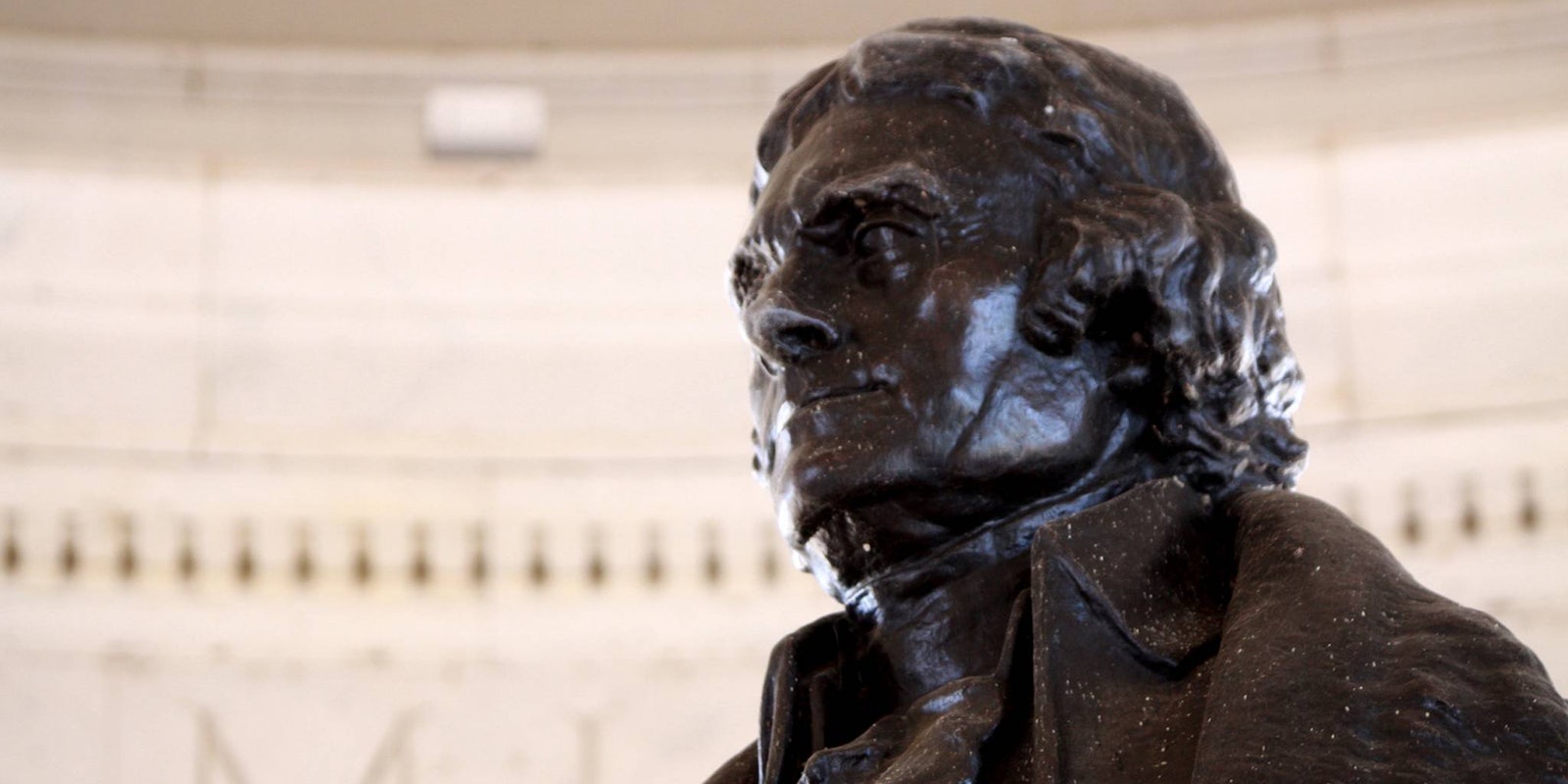As Americans consider privacy objections to the government’s push for more access to encrypted communications data, a panel of scholars debated the constitutional, religious, and historical underpinnings of the notion of privacy itself.
The panel, “Foundations of a Right to Privacy,” was the first of several discussions at a privacy conference at Kenyon College in Gambier, Ohio. The speakers—Peter Myers, a political-science professor at the University of Wisconsin–Eau Claire; Vincent Phillip Muñoz, a political-science professor at the University of Notre Dame; and Reva Siegel, a law professor at Yale Law School—offered various perspectives on where privacy comes from, how its origins affect its limits, and how it might change as society and its circumstances change—including around encryption.
Myers began by discussing John Locke, one of the most studied modern philosophers on liberal-arts campuses. Locke, he noted, was a deeply private person, because of his involvement in high-level political intrigue in late 17th-century England. He published anonymously, used an invented shorthand writing method, and scrawled in invisible ink.
It was, Myers said, “a kind of primitive encryption, really, to conceal some of his ideas from unwanted attention.”
Locke would go on to describe the purpose of civil society as a way of escaping the state of nature, in which privacy derived from a fundamental right to property. As Myers saw it, owning property meant being able to use the owned object for any purpose and in private, without sharing it. Property, he argued, created a zone of exclusivity that demanded a societal respect for privacy.
Locke, according to Myers, saw privacy as essential to civil society because of how it protected the ability to share dissenting opinions and build relationships based on individual trust.
Yet even Locke qualified his imagined privacy right, by putting it in the context of the societal good. And encryption, like any technology, posed threats to the societal good, Myers said.
Munoz focused more on the religious underpinnings of the concept of privacy. America’s Founders, he said, believed in protecting private life because they thought the government should focus more on liberal democracy than a theological order.
To Munoz, the lesson of documents like Thomas Jefferson’s “Notes on the State of Virginia” and the 1776 Virginia Declaration of Rights was clear: Let anyone do what he wants in his bedroom, even if it’s immoral, because God won’t punish the rest of us for that man’s sins, and the rest of us should think more about society at large.
But Locke and the Founders broke with the ancient philosophers, Munoz observed. They didn’t venerate privacy at all, because they saw moral virtue as more fundamental and precious to society than a private space that permitted shameful conduct.
In the question-and-answer session after the professors’ remarks, Munoz expressed skepticism about what he saw as FBI Director James Comey‘s suggestion, in his Wednesday night keynote address, that there were no limits to what the government could do when there were reasonable security concerns.
Munoz, who considers ethical issues involving politics and religion at Notre Dame, asked whether the Federal Bureau of Investigation could force a priest to break confessional if agents had reason to believe that the priest knew something vital to an investigation.
In his address, Comey said that he kept a copy of a memo from then-FBI Director J. Edgar Hoover to Attorney General Robert Kennedy requesting authority to spy on Martin Luther King, Jr. Comey said he required all new FBI agents to study that era of the bureau’s history, suggesting that it served as a warning against going too far. But on Thursday, Munoz challenged Comey’s belief that studying Hoover’s tactics ensured a better-behaved FBI.
Both Comey and Hoover raised concerns about national-security threats stemming from societal unrest, Munoz said. Comey, he warned, should not assume that the bureau could only move forward, not backward.
Siegel connected the broader privacy discussion to a concrete issue: reproductive, sexual, and marriage rights. Recounting the history of Supreme Court cases dealing with abortion, she noted that the Court embraced a notion—unwritten in the Constitution—of privacy based on a collection of defined protections. In the future, Siegel asked, would the Supreme Court generate new protections for personal expression and family life—including, perhaps, how people use technology to further that conduct?


